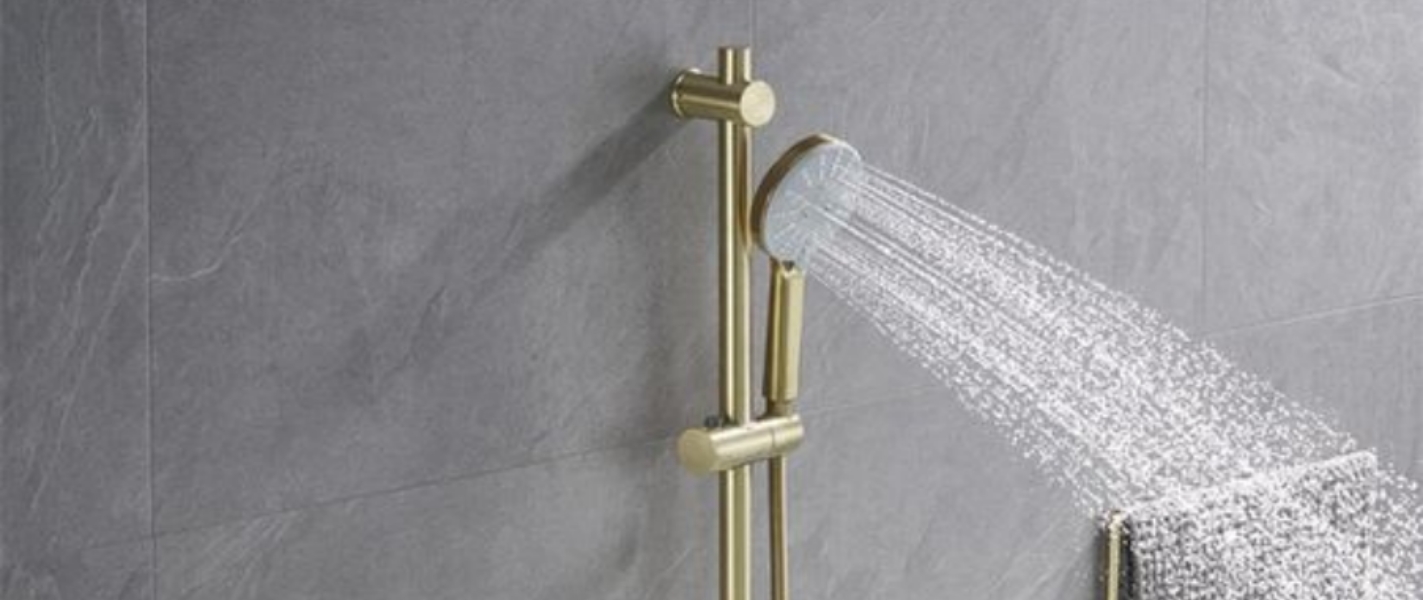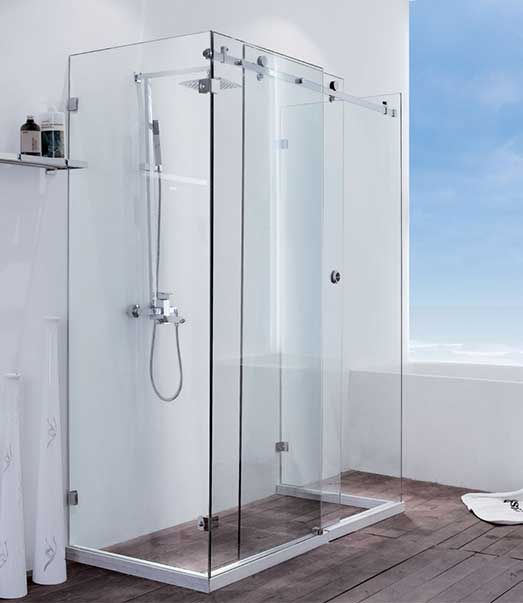Types of Shower Screen Door Options, You Can Get For Bathroom
There are several possibilities for shower screen doors, based on your needs, financial situation, and bathroom layout. Bathroom glass screen installers can help you choose the best option. The following options often feature high-quality glass glazing, which ensures strength, clarity, and resistance to moisture and impact.
- Sliding Doors: These doors move along tracks to open and close. Particularly for smaller bathrooms where a swinging door might not be practicable.
- Pivot Doors: Open on a central axis, pivot doors swing open. They may produce a sleek, contemporary appearance and are a popular option for bigger shower enclosures.
- Hinged Doors: Similar to conventional doors, hinged doors swing open. They can be fitted as a pair of doors or single doors for bigger apertures.
- Bi-Fold Doors: Bi-fold doors minimise the space. They take up when open by having two panels that fold in on themselves to provide simple access.
- Frameless Doors: These doors have no outer metal frame and are constructed of thick tempered glass. They have a simple, minimalist appearance and are frequently seen as more visually beautiful.
- Framed Doors: The glass panes of framed doors are framed with metal. They can offer additional stability and are typically less expensive than frameless alternatives.
- Personalised Designs: Shower screen doors with personalised designs may give your bathroom a different appearance. A good bathroom designer lets you customize the door to fit your tastes and bathroom design.
Advantages Of Selecting Shower Screens Without Frames
Selecting shower screens without frames has numerous advantages that can improve your bathroom appearance and use. The following benefits come when you work with frameless shower screen installers:
- Modern Aesthetic: Frameless shower screens may quickly improve the appearance of any bathroom thanks to their sleek, contemporary design.
- Enhanced Visibility: Shower screens increase the perception of space in the room. It gives you a clear sight of your beautifully tiled shower enclosure without large, ugly frames to obstruct your view.
- Simple to Clean: Because shower screens have fewer nooks and crannies; where dirt and grime can collect, they are simpler to clean.
- Customisable Design: Nearly every area and style desire may be accommodated by frameless shower screens.
- More Natural Light: The bathroom appears lighter and cosier thanks to the frameless shower curtains that let in an abundance of natural light. As a result, less artificial lighting may be used during the day.
- Versatile Style: Frameless shower screens complement classic and modern bathroom designs. They are a flexible option for any house.
- Optimised Space: By removing the unsightly clutter of large frames, shower screens provide the impression of a greater area in the bathroom. This is especially useful in little bathrooms when every available inch is valuable.
- Enhanced Home Value: By improving the bathroom's overall appearance and usefulness, installing shower screens may raise the value of your house.
Cost Of Installing Shower Screens
Shower screen installation costs vary based on the kind of screen, size, materials, and labour charges. While frameless versions normally cost between $700 and $2000. Simple framed shower screens can range in price from $200 to $600 on average. Custom or upscale items might cost more than $3,000. Upgrades to hardware, plumbing, and demolition may incur additional costs.
The shower screen replacement service cost, including installation, can range from $500 to $2,500+ in Australia, depending on factors like the type of screen (framed, semi-frameless, or frameless), size, and features. Basic framed screens can cost $300-$800 for the screen itself, with installation adding $150-$300, totaling $500-$1,000. Frameless screens may cost $800-$1,500 plus $300-$500 for installation, totaling $1,100-$2,000. You can compare quotes from multiple companies to hire affordable shower screen fitters.






